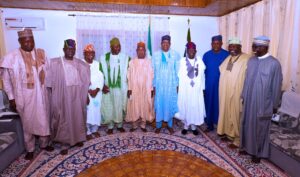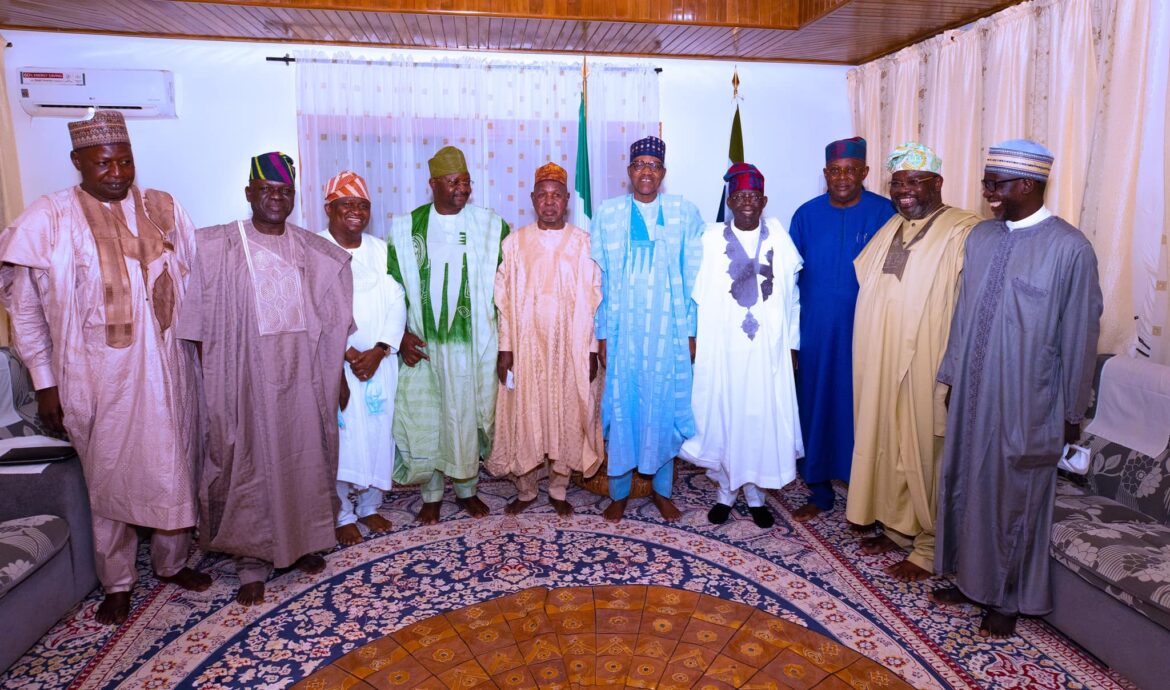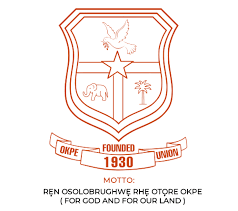
JUNE 5, 2023
Your Excellency,
- Introduction
We congratulate you on your successful inauguration as Nigeria’s 16th President and, more importantly, as the 6th democratically elected President of the Federal Republic of Nigeria. It is no mean feat to be elected president of any country, more so of a country as large and multi-ethnically, culturally and religiously diverse as Nigeria. The strength of such a diversity lies on how we harness the competing components in building a united country that is anchored on the respect and recognition of the independence of the various constituent ethnic nationalities, irrespective of their population.
Like most Nigerians, we listened to your “FIRST INAUGURAL ADDRESS” on May 29, 2023, at the Eagle Square, Abuja, FCT. Established on May 16, 1930, the Okpe Union is the oldest registered ethnic organization in Nigeria, and the foremost socio-cultural organization acting as the mouth piece of the Okpe Nation. The ancestral homeland of the Okpe is in Okpe and Sapele local government areas of Delta State.
Your well-documented activities in the National Democratic Coalition (NADECO) attest to your knowledge of the burning questions facing Nigeria. You were among a group of altruistic Nigerians that led the struggle for the emancipation of a democratic Nigeria from the gulags of military dictatorship, with the inception of NADECO on May 15, 1994. We dare say that among the six democratically elected Presidents of the Federal Republic of Nigeria, your strong pro-democracy activities and demonstrated adherence to renewed federalism, including your two terms as Governor of Lagos State, make you arguably the most qualified and experienced President to occupy this exultant office.
- Restructured Federalism
Your antecedents, both as a leading figure at NADECO and as Governor of Lagos State, prepared you as a strong advocate of restructured federalism and good governance in Nigeria. We are aware of the competing dynamics vis-à-vis these ideals in your government. However, we are convinced that you will employ all your persuasive powers to align these forces along the path of a restructured federalism and good governance. The current 1999 Constitution of the Federal Republic of Nigeria (as amended) is a distortion of federalism imposed on Nigeria by the military.
It is imperative to recognize that, there is a federation because federating units agree to federate, by deciding on the powers to assign the federal government. This explains why both the Independence (1960) Constitution and the Republican (1963) Constitution provided greater autonomy for the federating units of Nigeria, in accordance with the tenets of federalism which is anchored on the independent and coordinate relationship between the federating units and the center.
This was demonstrated by the negotiations and conclusions of the London and Lagos constitutional conferences of 1954 that established the Federation of Nigeria prior to the 1960 Independence. The then three federating units (the Eastern, Northern, and Western regions from 1954 to 1963) negotiated and agreed on the terms of Nigeria’s federalism, as well as on the powers to assign the Federal Government. The fourth federating unit, the Midwest, excised from the Western Region, acquiesced to these terms. Thus, from August 09, 1963 to January 15, 1966, the four federating units had expansive regional autonomy enshrined in the constitution; including having their respective constitutions, Coats of Arms, Emblems and Flags.
But the military intrusion into politics on January 15, 1966 ended the federal principle in Nigeria as successive military dictators injected a military-command system that has bastardized federalism in Nigeria, by reducing the federating units into mere administrative arms of the so-called federal government; just as the regional military governors were to the military head of state. This is the unfortunate legacy bequeathed to us by the military involvement in politics and governance of Nigeria.
As a federalist with enviable knowledge and experience acquired from your activities in NADECO and governorship of Lagos State, you are summoned by History to address this vexing national question. We therefore urge you to rectify this anomaly by considering the following: –
- Review the Report of the 2014 National Conference on Nigeria.
- Review the Draft Constitution for the Federal Republic of Nigeria proposed by PRONACO in August 2006.
- Call for Memoranda from National Ethnic Organizations on Renewed Federalism.
- Extinguish the federal role in the establishment of local government areas as this practice is anathema to a federal political system. It is the responsibility of each State to determine the number of local government areas it can establish, based on its resources.
- Delete all references to State capitals in the Constitution of the Federal Republic of Nigeria, as this is entirely under each state’s jurisdiction.
- Convene a National Conference of Ethnic Nationalities to review and adopt a Constitution of the Federal Republic of Nigeria based on sections i; ii; and iii above.
- Good Governance
We are aware that restructuring Nigeria by itself cannot lead to good governance as the history of contemporary Nigeria sadly testifies to. The dividends of democracy have eluded Nigerian citizens in all hamlets, villages, towns and cities across the country, due to the blatant corruption of federal, state and local government officials – elected and appointed. Thus, poor governance is the existential challenge undermining the growth and development of Nigeria from the Atlantic to the Savannah. Unfortunately, the established anti-corruption agencies have allegedly been compromised by the system. As a pathway towards good governance, we urge you to consider the following: –
- All anti-corruption agencies must enjoy complete independence so that they can execute their duties and responsibilities without any interference from any organ of State power.
- Officials of all anti-corruption agencies to be screened and appointed by a select joint committee of the Senate and the House of Representatives, comprised of members from all political parties in both chambers.
- Officials of the Independent National Electoral Commission (INEC) to be screened and appointed by a select joint committee of the Senate and the House of Representatives, comprised of members from all political parties in both chambers.
- Emulate the Chinese example in dealing with officials found guilty of embezzling public funds and/or of corrupting the electoral process.
- Institute an open contract bidding system in the Federal Government.
- Infrastructure
We notice your commitment to “continue the efforts of the Buhari administration on infrastructure” and that “Progress toward national networks of roads, rail and ports shall get priority attention”. While there is a natural tendency of a new administration to “continue” the activities of its predecessor, particularly where they belong to the same political party, the concept of continuity must be clarified to avoid repeating the poor policy choices and pitfalls of your predecessor.
With regards to “network of roads”, for instance, we draw your attention to the Benin-Sapele-Warri expressway which has been in a state of permanent disrepair for a couple of years. Considering the value of this expressway to Nigeria’s national economy, as it leads to both the Warri and Port Harcourt refineries, it is inexplicable that this vital road network has become a death trap for motorists and pedestrians. The fact that its reconstruction does not survive the next rainy season exemplifies the poor quality of work undertaken by the contractors engaged by the Federal Ministry of Works. This is squarely the responsibility of the Federal Ministry of Works, a situation which suggests corrupt practices by all parties involved. We appeal to you to take appropriate measures to ensure that this vital road network is reconstructed in accordance with global standards to ensure its durability in all seasons.
We are pleased to note that you stated that “rail and ports shall get priority attention” in your Administration. Of immediate concern to us is the resuscitation of the seaports at Sapele, Koko, and Warri. You may recall the critical role these seaports played in Nigeria’s economy before the civil war, when the military government discarded their use and began to concentrate on the expansion of Lagos and Apapa seaports. Since then almost the entire import-export business has been restricted to Lagos and Apapa seaports, to the detriment of Sapele, Koko and Warri seaports. The overconcentration of import-export business in Lagos and Apapa seaports is injurious to the national economy and Nigeria’s cohesion. It makes no economic sense to compel ships from Asian countries to berth at Lagos or Apapa when, for instance, Calabar, Port Harcourt, Sapele, Koko and Warri seaports are closer to Asia than Lagos and Apapa. Furthermore, let us consider the following countries or region and their number of seaports.
- Ghana with a population of 30.8 Million has 6 seaports.
- The Northwest Region of England with a population of 7.422 Million has 14 seaports.
- Canada with a population of 37.55 Million has 208 seaports.
- USA with a population of 337.5 Million have 360 commercial ports and over 600 seaports.
The establishment of a seaport should not be driven by political considerations rather it should be by economic imperatives for the betterment of the country. Therefore, we request your Administration to give urgent attention to the resuscitation of the Sapele, Koko, and Warri seaports for both economic growth and development and a contribution to national cohesion. Unlike the Lagos and Apapa axis, we do not need dredging at the Sapele, Koko and Warri seaports.
- Women and Youth
We are pleased that “Women and youth will feature prominently” as one of your guiding principles. We observe that most governments in the federation proclaim this as a “policy” or “principle” without any concrete specifics on its actualization. If you wish, we can provide a Concept Paper on this subject for your Administration’s review and consideration.
- Security and Welfare
Chapter ll: FUNDAMENTAL OBJECTIVES AND DIRECTIVE PRINCIPLES OF STATE POLICY of the Constitution of the Federal Republic of Nigeria, inter alia, states that “the security and welfare of the people shall be the primary purpose of government”. An honest assessment of government policy, especially of the national government in this area will reveal a huge neglect of the security and welfare of Nigerians. This situation deteriorated to an unprecedented level under the administration of your predecessor where bandits and terrorists were the de facto governments in most parts of the country.
We observed your recent instructions to your security chiefs to crush all bandits and terrorists, including oil thieves in the Niger Delta, which is mainly in Delta State. We hope this will not end up being a toothless bulldog as witnessed in the administration of your predecessor, where bandits and terrorists had easy access to AK-47 weapons which they freely carried on their shoulders in towns and villages across the country, while state governors were denied licenses to purchase similar weapons for their respective security agencies.
While we welcome any legal measures to tackle oil theft in Delta State and across the Niger Delta region, it is vitally important that commensurate action be taken by your Administration to provide for “the security and welfare of the people” as enshrined in the Constitution of the Federal Republic of Nigeria. For example, it is incongruous to ensure the “security” of the oil pipelines while neglecting the “welfare of the people” in the oil producing communities. Oil exploration and exploitation has ruined agriculture and fishery in the oil producing communities, rendering most inhabitants unemployed and unemployable. We call on your Administration to institute a socio-economic rehabilitation programme that will really benefit these displaced inhabitants. We also call on your Administration to implement the report of the recent forensic audit on the Niger Delta Development Commission (NDDC). Those found guilty, including NDDC officials and contractors, should be dealt with as per paragraph 3 section iv above.
Regarding the minimum wage of 30,000.00 NAIRA (Thirty Thousand Naira) per month, it is a national disgrace that most governments are unwilling and/or unable to pay this miserable amount to Nigerian workers, while federal and state parliamentarians elected to ensure that “the security and welfare of the people shall be the primary purpose of government” have no qualms in awarding themselves humongous salary increases, allowances, severances and pensions for themselves, the presidents/vice presidents and governors/deputy governors. This is a betrayal of the less privileged Nigerians and a gross aberration of Nigeria’s Constitution. We urge your Administration to pay urgent attention to this matter, as it is counterproductive to spend billions of naira protecting oil pipelines and government institutions across the country, when the welfare of the people is violently abused. The socio-economic rehabilitation programme we are suggesting should include an unemployment insurance policy to ensure a given monthly amount for unemployed Nigerians, who had worked for at least three consecutive months, while they are searching for new employments.
- Re-Naming of Osubi International Airport
The Osubi International Airport is located in Osubi, a major town in Okpe Local Government and was commissioned for commercial use on 1st April 1999. Towards the twilight of the last administration, the Okpe Union was both shocked and dismayed to hear that the outgoing President Muhammadu Buhari had approved the re-naming of the Airport after Alfred Diete-Spiff, a former Military Governor of old Rivers State under the General Yakubu Gowon era. We appreciate the need to name certain national assets after eminent citizens, dead or living.
However, Alfred Diete-Spiff had nothing to do with either the old Midwest region or Bendel or Delta States. He was not in any way connected to Osubi nor was he indigenous to Okpeland or the Okpe people of Delta State. With all due respect to him he never served Nigeria at “Federal” level such as to suggest that any national asset “anywhere” could be named after him.
Therefore, the Okpe Union is of the view that the re-naming of the Osubi International Airport after Alfred Diete-Spiff is not only a monumental error but a big slap on the Okpe people for which an immediate redress is required. The Okpe people have several eminent citizens such as Senator David Dafinone, a prominent Senate Leader in the Second Republic, General Patrick Aziza, a leading light of the military era, HRM Ezezi II and HRM Orhoro I, both eminent traditional rulers and statesmen after whom the Osubi International Airport may be renamed.
- Champion of the Black Race
We applaud your desire to position Nigeria “as the best hope and strongest champion of the Black Race”. To the best of our knowledge, not since President Kwame Nkrumah of Ghana has an African president south of the Sahara made such a profound declaration. This is a historic development that, if properly managed, can set the stage for valuable bilateral and multilateral relationships between Nigerians and the various countries with Black population around the world, especially in North, Central and South America, and the Caribbean Islands. A similar institution like the Nigerians in Diaspora Commission (NiDCOM) can be established to handle this portfolio. If you wish, we can provide a Concept Paper on this subject for your Administration’s review and consideration.
- Conclusion
We wish you excellent health and God’s guidance as you navigate the contours of national renewal and hope in Nigeria.
Sincerely,
Prof. O. Igho Natufe Barr. Kingsley Ehensiri Akpederin
President General, Okpe Union General Secretary, Okpe Union



